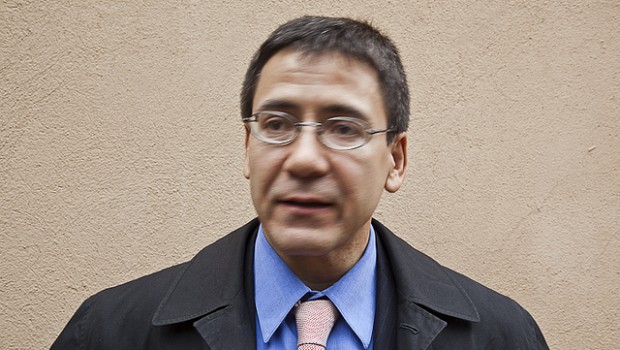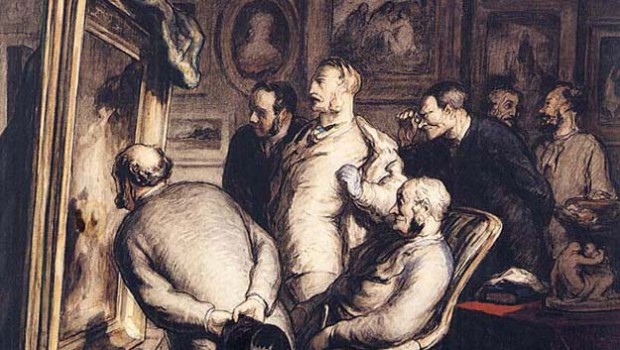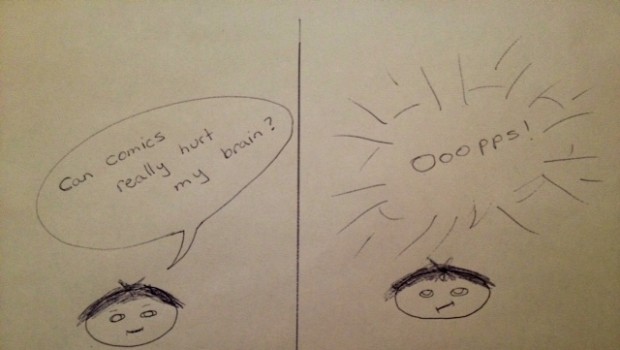On What is Normal…
Rogelio García-Contreras
Freak. Function: noun. Etymology: origin unknown.
1 a: a sudden and odd or seemingly pointless idea or turn of
the mind b: a seemingly capricious action or event
2 archaic : a whimsical quality or disposition
3 one that is markedly unusual or abnormal: as a: a person or
animal having a physical oddity and appearing in a circus
sideshow b slang (1): a sexual deviate (2): a person who
uses an illicit drug c: hippie d: an atypical postage stamp
usually caused by a unique defect in paper (as a crease) or
a unique event in the manufacturing process (as a speck
of dirt on the plate) that does not produce a constant or
systematic effect
4 a: an ardent enthusiast b: a person who is obsessed
with something
To live a normal life is the equivalent of a demolition project. When there is no hope for redemption, nor a way to open a path to the soul; when we cannot raise our hand against our destiny, precisely because is ours, there is only one thing left: to raise our hand against ourselves. When the reader is not any more the owner of his own life, his book may reveal to him that he can be the owner of his own death. The possibility to have control of our destiny is at times seductive but often overwhelming. It is here where liberty lies. Living is a huge challenge to the point that our will to do so with some dignity produces unbearable costs for our soul and our freedom. The normal life requires then normal men, but who lives a normal life? Who, in fact, is the normal man? He who, without negating it, does nothing for the eternal? Or he who, with much simpler mundane aspirations, aims to leave a legacy for future generations?
Searching for a clue, I read out loud. Watching with my mind, my ears start observing, my mouth begins her word feast. “Rather than aiming for an eternal life,” Camus states, “the absurd man prefers his courage and his reasoning. The first teaches him to live without appeal and to get along with what he has; the second informs him of his limits. Assured of his temporally limited freedom, of his revolt devoid of future, and of his mortal consciousness, he lives out his adventure within the span of his lifetime.” “That is his field,” he says, “that is his action, which he shields from any judgment but his own.” And so he writes and so it goes, “any judgment but his own”… and the normal man? I ask, what does he prefer? How does he behave? Aren’t we all —after all—nothing but absurd creatures aiming endlessly and sometimes pointlessly to appear normal, to be considered as such, to be judged and accepted in those terms?
What a sudden and odd idea. This Camus really gets to me. A seemingly pointless idea is in fact a turn of the mind, a vulnerable heart open to the benign indifference of the universe. This is probably the reason for which Mersault discovers that the safest path to selfknowledge is by committing a crime. But what a depressing story. This is exactly what neo-cosmopolitan, urban French literature can do to you. Selfish as he is, Mersault shoots an Arab on the beach without explicit reason and motivation—“it was hot!”, he says—No! Society replies, we demand a reason! Mersault must provide a reason!!! Really? Ok then, the Arab had earlier terrorized him and his friend Raymond, and he had a headache. Mersault is then condemned to die more for his refusal to accept the standards of ‘normal’ social behavior than for the crime itself. Clearly he is a crazy character, mentally ill, an unwelcome psychopath.
What an outrageous story. Camus and his turn of the mind, one more case of the insulting hangover of Western Civilization, so realistic, so rational, so free and equal, so scientifically objective. But is there such thing as objectivity? After all, we don’t seem to count with a rational plan to navigate in this adventure called life. To think or believe otherwise is a rather arrogant or at the very least schizophrenic claim. Integrity needs no rules. In a self-enclosed simulating room, a seemingly capricious action is indeed an act of integrity. The Truman Show desperately needs some heroes, but not the heroes of a 20th century Hollywood drama. Instead, society needs the mortal imperfect hero of Greek tragedies. Charging our heroes with a moral purpose makes them look more heroic. Their heroism lies then on the purpose of their actions rather than on their actions themselves. Greek tragedies, in contrast, are as bold as they could be rogue. Uniquely honest to the point that it hurts: Who will be there to emancipate the masses? Will it be religion or will it be faith? Neither! As a matter of fact, the masses can never be co-opted or emancipated, only indoctrinated.
Tragedy, not drama, is the essence of life. Life in its integrity demands happiness, and happiness in its veracity demands enjoying once nature to the fullest. To soothe one another mutually, Camus argues in The Fall, we occasionally pretend to condemn such joys as selfishness. For the levels of tolerance society grants are conductive to an absurd fact: in this world, it is better to be selfish than to be happy. We deal better with a diminishing reason that brings things back to the ordinary, than with any empowering action that could take us out of there. Life in its geometric constitution is reduced to order, principles, rules. In its poetic attempts, life requires a soul and the will to preserve it. Which source better explains the Spanish Civil War, history books or Picasso’s Guernica? Who is Velazquez painting in Las meninas, the portrait itself or that who observes it: you and I? If in fact he is painting us and every character in that room is looking at us, is it possible that we are the central characters of Velazquez’s Meninas? Does it matter?
So maybe Camus has a point, maybe there is no reason for finding a reason. Everything is a tragedy anyway, but some tragedies are more subtle than others. See, the problem is not that Mersault killed an Arab who happened also to be a human being; the problem for society is that he did it without an apparent legitimate reason. This is precisely what Camus calls, the absurd. But well seen, the absurdity does not rest on Mersault’s apparent lack of reason—“it was hot.” The absurdity of the whole situation is that society has a difficult time accepting Mersault’s excuse as a legitimate one, trying to add drama in order to digest what at every light is an authentic tragedy. This in essence is the absurdity of the normal man and his obsessive and repulsive adoration of the normal life. Once convicted, Meursault, the strange remorseless killer, accepts his fate, because it is his only true option; neither suicide, nor faith in God are options once he fully grasps the absurdity of the world in which he lives.The certainty of a God giving a meaning to life far surpasses in attractiveness the ability to behave badly with impunity. In an ideal, ‘normal’ world, the choice would not be hard to make. But well seen, there is no choice, and that is where the animosity comes in. The markedly unusual, absurd man does not liberate, Camus argues, instead, it binds. It does not authorize all actions. “Everything is permitted” does not mean that nothing is forbidden. Libertarian Freedom is then quite schizophrenic. Western Civilization, in turn, is equally ill. Far from being unique for its racist, imperialist and colonialist inclinations, Western Civilization is unique for maintaining the utopian aspiration of equality through the tolerant, moral and messianic-like ideal of universality; a universal human race.
Just like human rights might not be the product of an intellectual or “human” evolution, but of the spiritual and affective emptiness generated by progress and modernity, rules often emanate from an unreasonable order. Thus, men with a whimsical quality or disposition cannot so much expect ethical rules at the end of their reasoning. No one expresses this better than Rolling Stones’ guitarist Keith Richards who, obsessed with all kinds of excesses, once said : “I have never been in trouble with drugs, just with the police.”
Any ardent enthusiast knows for a fact that instinct, not reason, is what ultimately guides us towards what is naturally right. Disobedience is one of the strongest signals of our self-consciousness. When we disobey in an intelligent way, we disobey in a natural way, and this turns out to be more beneficial than blind obedience: Blind obedience castrates, negates, hides, and destroys everything that is poetic and magnificent of the human condition. On the other hand, instinct and disobedience will always point us in a direction that is not only natural but organic to the world. Just as disobedience may turn out to be a virtue, blind obedience is a sin. Going against the established norm can very well be a courageous and virtuous act. In the world of what is normal, nothing stimulates more than the incompatible. In a normal world, the value of a notion or of a life is often measured by its sterility. The normal man offers nothing but justifications; like Hector challenging the favorite of the Gods, the abnormal man—in contrast—knows there is nothing to justify… What a freak!
– Rogelio García Contreras is the author of an array of articles, and often collaborates with Literal. Latin American Voices.
Posted: April 16, 2012 at 7:07 pm










